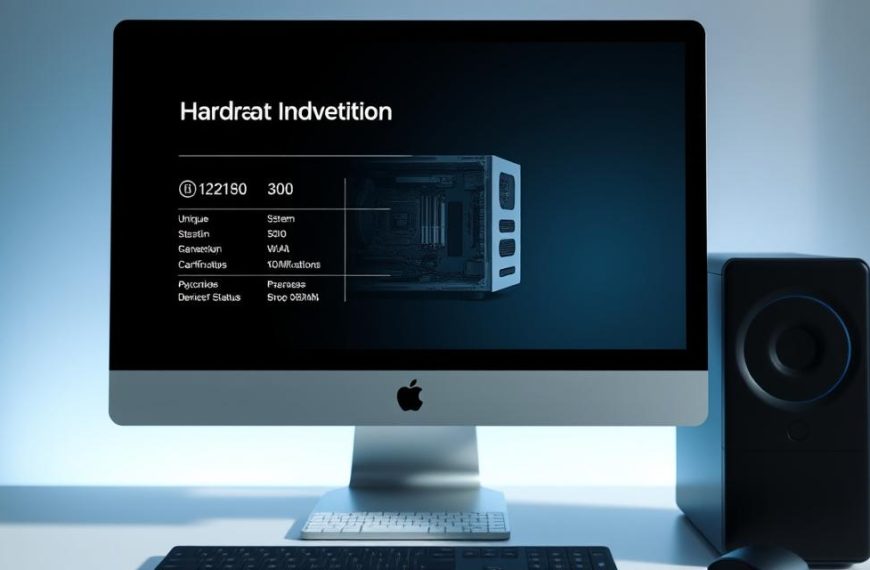Computer information systems (CIS) are vital technological frameworks. They transform how businesses handle digital resources. CIS blend technology, people, and processes to manage data across organisations.
In today’s digital world, CIS are crucial for business success. The U.S. Department of Labor forecasts rapid growth in this field. CIS jobs are set to grow twice as fast as other careers.
Data management is central to CIS. It helps organisations process complex information efficiently. Businesses use CIS to streamline operations and make smart decisions.
CIS support rapid digital transformation in companies. They provide robust technological infrastructures. This allows businesses to stay agile in a fast-changing digital landscape.
The demand for CIS professionals is growing. These experts bridge technology and business strategy. They help organisations stay competitive in our data-driven world.
CIS cover areas from cybersecurity to data analytics. They provide the tech backbone for business innovation. This empowers companies to thrive in the global marketplace.
Understanding Computer Information Systems Fundamentals
Computer Information Systems (CIS) are vital for modern organisations. They blend technology and business processes to boost efficiency. CIS use hardware, software, data, and human know-how to create useful insights.
CIS architecture focuses on smooth data handling. Firms use these systems to improve operations and make smart choices. They help businesses stay ahead in the market.
Core Components of CIS Architecture
CIS architecture has key parts that work together. These elements support business processes effectively.
- Hardware infrastructure
- Software applications
- Network connectivity
- Data management systems
- Human resources and expertise
Role of CIS in Modern Business Operations
Information systems change how businesses work. They help organisations in many ways.
- Collect and analyse complex data sets
- Support strategic decision-making
- Enhance communication channels
- Optimize resource allocation
Data Management and Processing Functions
Good data processing is crucial for CIS architecture. The system handles many tasks.
| Function | Description |
|---|---|
| Data Collection | Gathering information from various sources |
| Data Storage | Securely preserving organisational information |
| Data Analysis | Extracting meaningful insights from complex datasets |
| Data Retrieval | Accessing and utilising stored information efficiently |
Modern CIS architectures change to meet new business needs. They are flexible and always improving.
The integration of advanced technologies ensures organisations can leverage data as a strategic asset.
What Are Computer Information Systems: Essential Features and Functions
Computer Information Systems (CIS) are advanced tech frameworks that revolutionise business operations. They blend various tech components to tackle complex organisational issues. CIS aims to use technology to simplify processes and create useful insights.
CIS boasts several key features:
- Advanced data analysis techniques
- Robust database management systems
- Comprehensive cybersecurity protocols
- Strategic IT project management
Programming languages are crucial in developing information system functions. These functions help businesses process numerical data efficiently. CIS pros use smart tools to turn raw info into valuable decision-making resources.
CIS features are versatile, helping organisations solve tech challenges comprehensively. Graduates in this field can pursue various exciting careers. These include data analysis, cybersecurity, and software development.
Salaries in these roles typically range from £50,000 to £85,000 per year. This reflects the high value placed on CIS skills in today’s job market.
CIS bridges technology and business strategy, creating intelligent systems that drive organisational efficiency.
Modern businesses rely heavily on CIS to stay competitive. This shows how vital these tech frameworks are in today’s professional world.
Distinguishing CIS from Related Fields
Computer Information Systems (CIS) occupies a unique space in the technology ecosystem. It bridges the gap between technical expertise and business strategy. CIS professionals play a crucial role in today’s tech-driven world.
CIS and computer science have fascinating distinctions. Computer science focuses on theoretical computing and programming principles. CIS emphasises practical technology applications in business settings.
Computer Information Systems vs Computer Science
Key differences between CIS and computer science include:
- Approach: Computer science prioritises algorithmic design and theoretical computation
- Focus: CIS concentrates on technological solutions for business challenges
- Skill Set: CIS requires stronger business acumen and communication skills
CIS vs Information Technology: Key Differences
Information technology is a broader field, with CIS as a specialised subset. CIS professionals have specific roles within IT.
- Install and maintain technological infrastructure
- Diagnose system complexities
- Optimise computer security
- Create and manage databases
Understanding Business-Technology Integration
CIS professionals excel at integrating technological solutions with organisational objectives. They translate between technical capabilities and business strategies. This ensures that technology supports and enhances operational efficiency.
CIS represents the strategic intersection where technology meets business innovation.
Applications and Implementation of CIS in Business
Computer Information Systems (CIS) are vital in modernising business operations across industries. They streamline processes, boost decision-making, and drive innovation. CIS implementation transforms how firms handle crucial information resources.
CIS applications offer strategic advantages in various business areas. They enable global communication through web-based systems. They also develop smart business analytics platforms.
CIS creates advanced data management solutions. It implements cybersecurity defences to protect valuable information assets.
- Facilitating web-based information systems for global communication
- Developing intelligent business analytics platforms
- Implementing cybersecurity defence mechanisms
- Creating advanced data management solutions
Different information systems address specific organisational needs. Transaction Processing Systems (TPS) handle routine business tasks. Management Information Systems (MIS) support planning and operations.
Executive Support Systems (ESS) provide strategic insights for senior leaders. These systems help businesses make informed decisions at all levels.
Firms increasingly rely on CIS experts to develop efficient web applications. The demand for skilled CIS professionals is growing. Graduates find opportunities in finance, healthcare, manufacturing, and technology.
CIS implementation transforms how businesses collect, process, and leverage critical information resources.
Key focus areas include business analytics and artificial intelligence. Blockchain technologies and database modelling are also crucial. These skills help create robust systems that drive competitive advantage.
Career Opportunities in Computer Information Systems
Computer information systems (CIS) careers offer exciting prospects for tech-savvy graduates. The field is growing rapidly, with a 17% increase projected through 2033. UK graduates can expect diverse roles in IT, business analysis, and tech innovation.
CIS careers boast attractive salaries. Information Systems Managers can earn up to £162,873 yearly. Business Systems Analysts average £89,276 annually. Entry-level software developers start around £98,273, offering competitive pay for new graduates.
In-Demand CIS Job Roles
Key CIS roles include Database Administrators, Network Systems Administrators, and Cybersecurity Analysts. Within 15 months of graduation, 56% of CIS graduates secure jobs in programming and software development.
Many also find work in IT business analysis and cybersecurity. The UK job market is strong, with 75.5% of graduates landing tech-related positions.
Career Development and Skills
Successful CIS professionals need both technical expertise and strategic thinking. Critical skills include data management, system architecture knowledge, and strong analytical abilities.
UK employers value graduates who blend tech know-how with business sense. This reflects the interdisciplinary nature of modern CIS careers.












